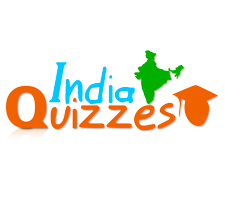Question: Geneco technology is-
1. A defence system for prevention from AIDS
2. A method for the development of species for food crops
3. A techniques for pre-information regarding genetic diseases
4. A technique for prevention of cataract
Answer: 3
Question: Which is the smallest gland in human body?
1. Liver
2. Thyroid
3. Pituitary
4. Salivary Glands
Answer: 3
Question: An epidemic of infectious diseases which is passed on through population across a large region3 or worldwide is called
1. Pandemic
2. Endemic
3. Global
4. Non-infectious
Answer: 2
Question: Which one of the following processes does not pollute air?
1. Use of Cosmetics
2. Photosynthesis
3. Burning of Dead woods
4. Use of insecticides
Answer: 2
Question: Convulsions in infants is caused due to the deficiency of
1. Iodine
2. Vitamin D
3. Vitamin B-6
4. Vitamin C
Answer: 2
Question: Which part of a plant respires?
1. Root
2. Leaf
3. Seed
4. All of these
Answer: 2
Question: Haemophilia is mostly associated with
1. Labourers
2. Royal families
3. Miners
4. Sportsmen
Answer: 2
Question: Protein which renders a cell less susceptible to attack by viruses is called
1. Actomyosin
2. Chloromycetin
3. Hybridoma
4. Inferon
Answer: 2
Question: Which of the following enzymes converts proteins into peptones?
1. Pepsin
2. Trypsin
3. Erepsin
4. Enterokinase
Answer: 1
Question: Approximately, how any times each day do our heart valves open and close normally?
1. 10000 times
2. 100000 times
3. 150000 times
4. 200000 times
Answer: 2
Question: What is common in AIDS, mumps and poliomyelitis?
1. Young children get affected most readily
2. No effective vaccine has yet been developed for them
3. These are caused by viruses
4. Their germs can be transmitted through blood transfusions
Answer: 3
Question: Which one of the following is an example of vestigial organ in man?
1. Ear Muscles
2. Jaw apparatus
3. Canine teeth
4. Humerus
Answer: 1
Question: Which of the following diseases is not caused by viruss?
1. Chickenpox
2. Cholera
3. Hepatitis
4. Measles
Answer: 2
Question: Phylloquinone is the chemical name of
1. Vitamin D
2. Vitamin E
3. Vitamin K
4. Vitamin C
Answer: 3
Question: Why do birds not have respiratory trouble at the time of flying at high altitude?
1. Their lungs are very large
2. They fly inactively
3. They have extra air sacs
4. They use less oxygen
Answer: 3
Question: In making the saffron spice, which one of the following parts of the plant is used?
1. Leaf
2. Petal
3. Sepal
4. Stigma
Answer: 4
Question: The least distance of distinct vision for a normal eye is
1. 10 cm
2. 25 cm
3. 15 cm
4. 45 cm
Answer: 2
Question: Homes are controlled by which of the following human body systems?
1. Endocrine System
2. Circulatory System
3. Immune System
4. Reproductive System
Answer: 1
Question: The vital constituent of blood that helps in clotting is
1. Platelets
2. Plasma
3. Haemoglobin
4. Serum
Answer: 1
Question: In increasing sequence, the major elements present in the human body are
1. Calcium, iron, sodium, phosphorus
2. Calcium, phosphorus, potassium, sulphur
3. Calcium, iron, sodium, sulphur
4. Calcium, potassium, phosphorus, iron
Answer: 1
Question: Which disease is more common among agricultural workers as compared to urban population?
1. Lung’s disease
2. Cirrhosis of liver
3. Hookworm infection
4. Cancer
Answer: 3
Question: The “stones” formed in human kidney consist mostly of
1. Calcium oxalate
2. Magnesium sulphate
3. Sodium chloride
4. Sodium phosphate
Answer: 3
Question: The role of chlorophyll in photosynthesis is
1. Absorption of water
2. Absorption of light
3. Absorption of Co2
4. None of these
Answer: 2
Question: Herbicides are chemicals which control
1. Fungi
2. Weeds
3. Nematodes
4. Insects
Answer: 2
Question: Process of breeding fish in ponds and artificial reservoirs is known as
1. Aquaculture
2. Fishing
3. Apiculture
4. Pisciculture
Answer: 4

Select Page

